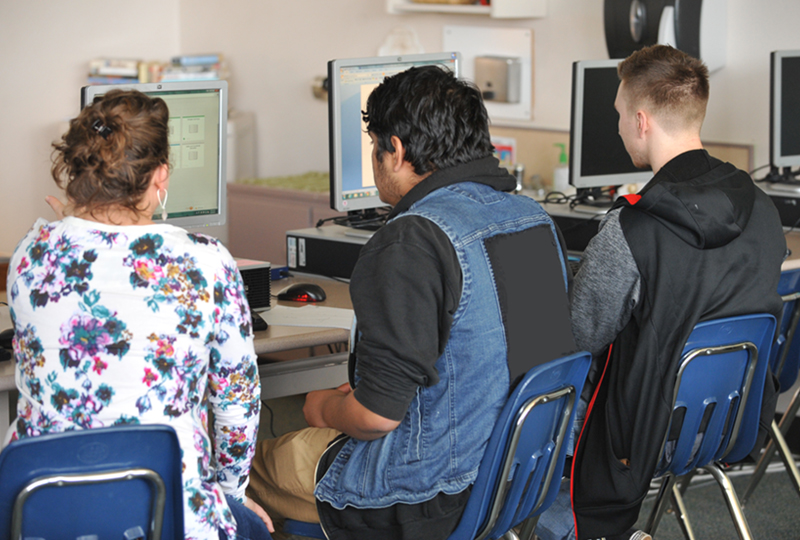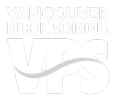Alternative education
More options for achieving a high school diploma or GED

Alternative Learning Experiences (ALE) are public education opportunities where some or all of the instruction is delivered outside of a regular classroom. There are many types of alternative education setting and options for K-12 students. These options include online learning, parent partnerships for homeschooling families, Competency Education, and GED preparation and testing. Learn more about in-district options available through Heights Campus and a variety of out-of-district options below.
Home‐Based Instruction
Is provided by the parent or guardian as authorized under RCW 28A.200 and 28A.225.010.
Students are not enrolled in public education and are not subject to the rules and regulations governing public schools, including course, graduation, and assessment requirements.
The public school is under no obligation to provide instruction or instructional materials, or otherwise supervise the student’s education.Alternative Learning Experience: Student Recovery Program
Is authorized under WAC 392‐121‐182.
Students are enrolled in public education either full‐time or part‐time.
Students are subject to the rules and regulations governing public school students including course, graduation, and assessment requirements for all portions of the ALE.
Learning experiences are: Supervised, monitored, assessed, and evaluated by certificated staff; Provided via a written student learning plan; and Provided in whole, or part outside the regular classroom.Part‐time Enrollment of Home‐Based Instruction Students
Home‐based instruction students may enroll in public school programs, including ALE programs, on a part‐time basis and retain their home‐based instruction status. In the case of part‐time enrollment in ALE, the student must comply with the requirements of the ALE written student learning plan, but is not required to participate in state assessments or meet state graduation requirements.
Contact
Student welfare and attendance:
360-313-1330
Vancouver Home Connection at Heights Campus
Vancouver Home Connection consists of several alternative learning options, including a K-6 elementary school parent partnership that is a combination of direct instruction from certificated teachers and homeschooling. Another option is homeschool support, which provides a consulting teacher who supports the homeschooling parent. Both of these options require a high level of parent involvement and engagement.
Intent to Homeschool
In accordance with state law, a parent planning to administer home-based instruction must complete an Intent to Homeschool form and submit it to the student welfare and attendance office. An Intent to Homeschool declaration must be completed yearly. Visit the Washington Homeschool Organization for more information.
You can also fill out VPS’ Declaration of Intent to Homeschool online; the form will be sent directly to the student welfare and attendance office for processing. The Intent to Homeschool form is now available.
Intent to Homeschool form
Students who wish to transfer out of the Vancouver Public Schools to participate in online programs such as WAVA or Insight should visit the boundary exceptions page for more information.
Vancouver Open Doors at Heights Campus
Vancouver Open Doors at Heights Campus is an in-district option for 11th and 12th grade students who are significantly credit deficient and/or in danger of dropping out of high school. The supportive learning environment provides individualized pathways for students ages 16-21 to achieve their life goals. Depending on the student’s educational and career goals, they can access online courses, competency pathways, including work based learning, and GED preparation and testing.
Clark College Open Doors
Open Doors at Clark College is a program for students who have either dropped out of high school or are not expected to graduate high school by the age of 21. Open Doors provides opportunities and pathways for students ages 16-21 that fit their educational and career goals. Student can take classes in either Transitional Studies (pre-college) or associate degree programs. Transitional Studies includes Career and Academic Preparation courses that prepare you to earn a GED; you can also earn credits that can count toward your original Vancouver School District high school transcript so you can earn your diploma. Student can also earn Professional/technical certificates and associate degrees. For more information, please call at (360) 992-2741or via email at tssupport@clark.edu.
ESD 112 Open Doors at NEXT
ESD 112 Open Doors offers students ages 16-21 who are credit deficient; free GED preparation and testing, high School credit recovery, and career/work readiness and preparation. Open Doors at NEXT provides students with a flexible learning plan so they can learn at their own pace. Staff work closely with students to ensure academic goals are being met, as well as assisting with career and college readiness skills. Also, students are able to access the Cascadia Technical Academy, where they can participate in career and technical education training. For more information, please contact ESD 112 staff at 360-949-1987.
Washington Youth Academy is a free three-phase residential program that provides a highly disciplined, safe and professional learning environment for at-risk youth. Students can earn up to 8 credits and gain job skills while being challenged and developing self-discipline. Washington Youth Academy is located in Bremerton, Washington. Students must be legal resident of Washington and United States, not currently on parole or probation for anything other than juvenile offenses, have no felonies on record and must be drug-free upon enrollment.
Job Corps is a free career and academic training program for students who are ages 16-24. Opportunities available through Job Corps include GED and high school diploma, job placement and driver’s education. Housing, meals and basic medical services are provided. Students must be a U.S. citizen or legal resident, meet income guidelines and be motived and committed to the program.
Students must also be U. S citizen or a legal resident and meet income guidelines.
Connect 2 Careers Youth Workforce provides guidance and support for participants to develop strategies to achieve academic, personal and employment goals.
Students must be 16 to 21 years of age, currently out of school, low-income and facing barriers to success.
